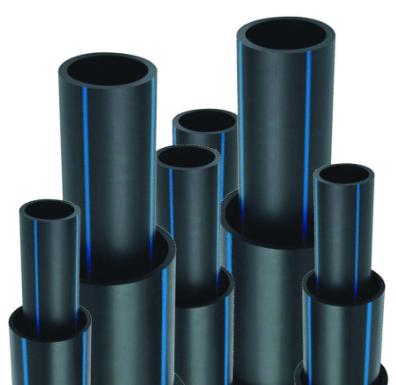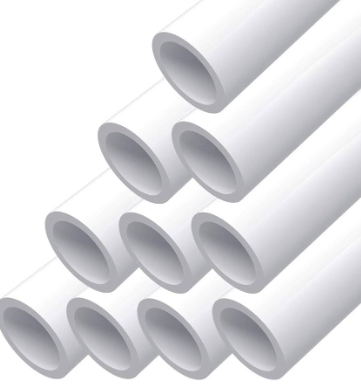- Understanding the Role of Geomembrane Liners in Waste Management
- Innovations in Geomembrane Liners for Water Management
- Geomembrane Liners: A Comprehensive Guide
- The Future of Geomembrane Liners in Civil Engineering
- Geomembrane Liners: Enhancing Landfill Stability
Manager:
WhatsApp:+86 177 0135 2670
Tel:+86 177 0135 2670
Email:marketing@okorder.com
Address:3rd Floor, No.2 Building, No.1 Sanlihe Road
Which is better HDPE or PVC?
Introduction:
Composite geomembranes play a vital role in various engineering and environmental applications, offering robust containment solutions for liquid and solid materials. Within this realm, high density polyethylene (HDPE) geomembranes and polyvinyl chloride (PVC) geomembranes stand out as popular choices. Both materials boast unique characteristics, but which one reigns supreme? In this comprehensive analysis, we delve into the strengths and weaknesses of HDPE and pvc geomembranes to determine which is better suited for specific applications.

Understanding Composite Geomembranes:
Composite geomembranes combine multiple layers of different materials to capitalize on the strengths of each component. Typically, these membranes consist of a high-strength geotextile fabric bonded to a geomembrane liner, providing enhanced mechanical properties and puncture resistance. This innovative design offers superior performance in containment applications, ranging from landfill liners to agricultural ponds.
High Density Polyethylene Geomembrane (HDPE):
hdpe Geomembranes are renowned for their exceptional durability and chemical resistance. Fabricated from high-density polyethylene resins, these geomembranes exhibit impressive tensile strength and puncture resistance, making them ideal for demanding applications such as hazardous waste containment and mining operations. Additionally, HDPE geomembranes offer excellent resistance to UV radiation, ensuring long-term performance in outdoor installations without degradation.
Strengths of HDPE Geomembranes:
1. Superior Durability: HDPE geomembranes are known for their robust construction, capable of withstanding harsh environmental conditions and mechanical stresses.
2. Chemical Resistance: HDPE exhibits excellent resistance to a wide range of chemicals, including acids, alkalis, and hydrocarbons, making it suitable for containment applications involving hazardous substances.
3. UV Stability: The inherent UV resistance of HDPE ensures prolonged service life in outdoor applications, reducing maintenance requirements and lifecycle costs.
4. Weldability: HDPE geomembranes can be easily heat-welded to create seamless liners, providing leak-proof containment solutions for critical applications.
Weaknesses of HDPE Geomembranes:
1. Temperature Sensitivity: HDPE geomembranes may become brittle at low temperatures, limiting their suitability for installations in extreme cold climates.
2. Limited Flexibility: While HDPE geomembranes offer excellent tensile strength, they are relatively less flexible compared to other materials, which may pose challenges in certain applications requiring conformability.
Polyvinyl Chloride Geomembrane (PVC):
PVC geomembranes are prized for their versatility and cost-effectiveness in containment applications. Composed of polyvinyl chloride resins and plasticizers, these geomembranes offer a balance of mechanical properties and chemical resistance, making them suitable for a wide range of environmental and industrial applications.
Strengths of PVC Geomembranes:
1. Cost-Effectiveness: PVC geomembranes typically offer a lower initial cost compared to HDPE alternatives, making them an attractive option for budget-conscious projects.
2. Flexibility: PVC geomembranes exhibit excellent flexibility and conformability, allowing for easy installation over irregular surfaces and contours.
3. Chemical Resistance: PVC demonstrates good resistance to many chemicals, particularly in neutral to mildly acidic environments, making it suitable for applications such as agricultural ponds and decorative water features.
Weaknesses of PVC Geomembranes:
1. Environmental Impact: PVC production involves the use of chlorine and plasticizers, which can raise concerns about environmental toxicity and long-term sustainability.
2. Vulnerability to UV Degradation: PVC geomembranes may degrade when exposed to prolonged UV radiation, necessitating the use of UV stabilizers or protective covers in outdoor installations to prevent premature failure.
Comparative Analysis:
When comparing HDPE and PVC geomembranes, several factors must be considered to determine the most suitable material for a specific application. HDPE geomembranes excel in demanding environments where durability, chemical resistance, and UV stability are paramount. Their robust construction and weldability make them ideal for critical containment applications such as hazardous waste landfills and industrial storage facilities.
On the other hand, PVC geomembranes offer cost-effective solutions for less demanding applications where flexibility and initial cost are primary considerations. While PVC may lack the chemical resistance and long-term durability of HDPE, it remains a viable option for agricultural ponds, decorative water features, and temporary containment applications.

Conclusion:
In the ongoing debate of HDPE versus PVC geomembranes, there is no one-size-fits-all answer. The choice between these materials ultimately depends on the specific requirements of each project, including environmental conditions, chemical exposure, budget constraints, and installation complexity. By carefully evaluating the strengths and weaknesses of HDPE and PVC geomembranes, engineers and environmental professionals can select the most suitable material to ensure reliable containment and long-term performance."
-
2024-06-13Geomembrane is not plastic cloth






